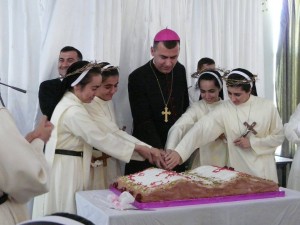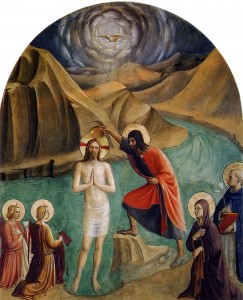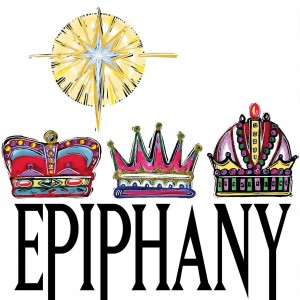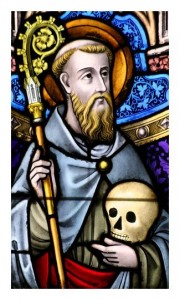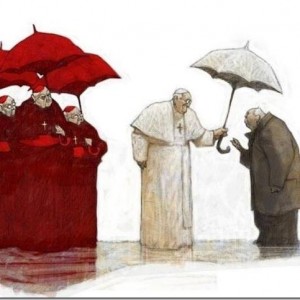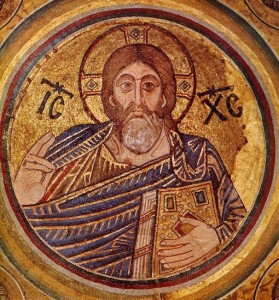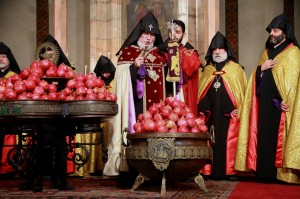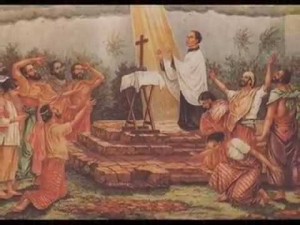 Today’s the feast of Saint Joseph Vaz, the most recent canonized saint of the Church. It is also the first time we get to remember him liturgically. Saint Joseph is one of four saints of the Congregation of the Oratory.
Today’s the feast of Saint Joseph Vaz, the most recent canonized saint of the Church. It is also the first time we get to remember him liturgically. Saint Joseph is one of four saints of the Congregation of the Oratory.
Here is Pope Francis’ homily earlier in the week (14 January 2015) when he canonized Vaz in Colombo, Sri Lanka.
“All the ends of the earth will see the salvation of our God” (Is 52:10)
This is the magnificent prophecy which we heard in today’s first reading. Isaiah foretells the preaching of the Gospel of Jesus Christ to all the ends of the earth. This prophecy has a special meaning for us, as we celebrate the canonization of a great missionary of the Gospel, St Joseph Vaz. Like countless other missionaries in the history of the Church, he responded to the Risen Lord’s command to make disciples of every nation (cf. Mt 28:19). By his words, but more importantly, by the example of his life, he led the people of this country to the faith which gives us “an inheritance among all God’s holy ones” (cf. Acts 20:32).
In St Joseph we see a powerful sign of God’s goodness and love for the people of Sri Lanka. But we also see in him a challenge to persevere in the paths of the Gospel, to grow in holiness ourselves, and to testify to the Gospel message of reconciliation to which he dedicated his life.
As a priest of the Oratory in his native Goa, St Joseph Vaz came to this country inspired by missionary zeal and a great love of its people. Because of religious persecution, he dressed as a beggar, performing his priestly duties in secret meetings of the faithful, often at night. His efforts provided spiritual and moral strength to the beleaguered Catholic population. He had a particular desire to serve the ill and suffering. His ministry to the sick was so appreciated by the king during a smallpox epidemic in Kandy that he was allowed greater freedom to minister. From Kandy, he could reach out to other parts of the island. He spent himself in missionary work and died, exhausted, at the age of fifty-nine, revered for his holiness.
St Joseph Vaz continues to be an example and a teacher for many reasons, but I would like to focus on three. First, he was an exemplary priest. Here today with us are many priests and religious, both men and women, who, like Joseph Vaz, are consecrated to the service of God and neighbour. I encourage each of you to look to Saint Joseph as a sure guide. He teaches us how to go out to the peripheries, to make Jesus Christ everywhere known and loved. He is also an example of patient suffering in the cause of the Gospel, an example of obedience to our superiors, an example of loving care for the Church of God (cf. Acts 20:28). Like ourselves, St Joseph Vaz lived in a period of rapid and profound transformation; Catholics were a minority, and often divided within; there was occasional hostility, even persecution, from without. And yet, because he was constantly united with the crucified Lord in prayer, he could become for all people a living icon of God’s mercy and reconciling love.
Second, St Joseph shows us the importance of transcending religious divisions in the service of peace. His undivided love for God opened him to love for his neighbour; he ministered to those in need, whoever and wherever they were. His example continues to inspire the Church in Sri Lanka today. She gladly and generously serves all members of society. She makes no distinction of race, creed, tribe, status or religion in the service she provides through her schools, hospitals, clinics, and many other charitable works. All she asks in return is the freedom to carry out this mission. Religious freedom is a fundamental human right. Each individual must be free, alone or in association with others, to seek the truth, and to openly express his or her religious convictions, free from intimidation and external compulsion. As the life of Saint Joseph Vaz teaches us, genuine worship of God bears fruit not in discrimination, hatred and violence, but in respect for the sacredness of life, respect for the dignity and freedom of others, and loving commitment to the welfare of all.
Finally, St Joseph gives us an example of missionary zeal. Though he came to Ceylon to minister to the Catholic community, in his evangelical charity he reached out to everyone. Leaving behind his home, his family, the comfort of his familiar surroundings, he responded to the call to go forth, to speak of Christ wherever he was led. St Joseph knew how to offer the truth and the beauty of the Gospel in a multi-religious context, with respect, dedication, perseverance and humility. This is also the way for the followers of Jesus today. We are called to go forth with the same zeal, the same courage, of St Joseph, but also with his sensitivity, his reverence for others, his desire to share with them that word of grace (cf. Acts 20:32) which has the power to build them up. We are called to be missionary disciples.
Dear brothers and sisters, I pray that, following the example of St Joseph Vaz, the Christians of this country may be confirmed in faith and make an ever greater contribution to peace, justice and reconciliation in Sri Lankan society. This is what Christ asks of you. This is what St Joseph teaches you. This is what the Church needs of you. I commend all of you to the prayers of our new saint, so that, in union with the Church throughout the world, you may sing a new song to the Lord and declare his glory to all the ends of the earth. For great is the Lord, and greatly to be praised (cf. Ps 96: 1-4)! Amen.
